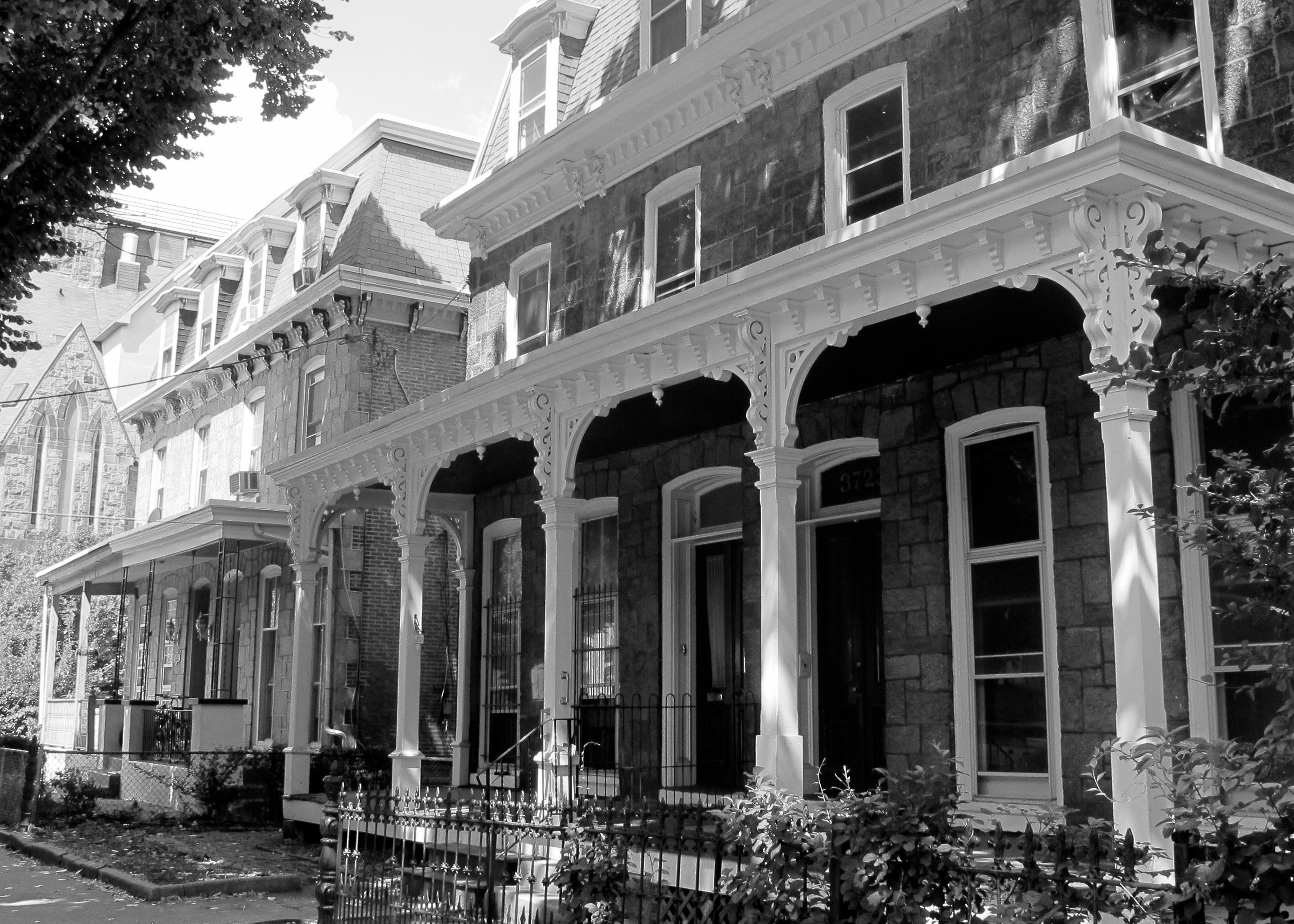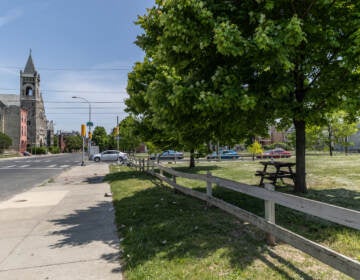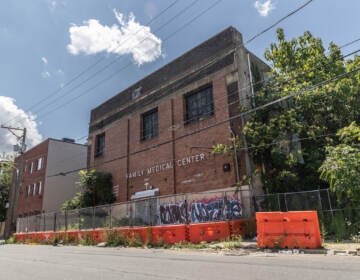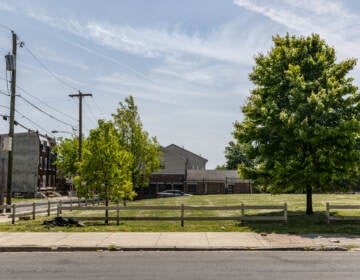Planning Commission weighs in on micro-apartments, RCO rule changes, and rezoning bills

The May meeting of the Philadelphia City Planning Commission tackled 22 agenda items, including a raft of rezonings and the continuing evolution of rules for Registered Community Organizations.
Redevelopment Agreement for 3101-03 Cecil B. Moore Avenue
Planning Commission reviews of Philadelphia Redevelopment Authority (PRA) agreements are uncommon these days, as the authority transfers more properties to the Land Bank and sells more of its properties. But every now and then the commission’s staff will highlight a sale, if they have concerns.
In this case, the staff concern is about a proposal to build 12 for-sale micro-apartments in an PRA-owned building (and a non-PRA-owned neighbor) on the eastern edge of Strawberry Mansion, just above Brewerytown. The project enjoys the support of City Council President Darrell Clarke’s office, but the Planning Commission recommended against support for the PRA sale because its density is far higher than its traditional use.
The developer, Mosaic Development Partners, argued that it has already established similar apartments in the neighboring Eastern Lofts property, converting an old warehouse into 37 residential apartments. With that project and the new proposed micro-apartments, the company seeks to find a way to market one-bedroom units to millennials, whom it characterizes as starved for privacy and forced into group living.
Mosaic estimates the price will be in the low $100,000s for units that are 400 to 420 square feet. The company says projects like this would help young people build equity and avoid climbing rents, in a city where a new rental apartment can cost between $1,000 and $1,500 a month. Instead the price Mosiac hopes to sell for would mean owners might pay a $600 monthly mortgage.
“We are not seeking to gentrify communities,” says Gregory Reaves, of Mosaic. “We have a term called gentrigation, bringing new people into communities and also integrating them rather than displacing people from communities where they’ve been.”
Planner David Fecteau said the staff opposed the sale not out of a disapproval of microunits, but because it would be double the density of what has historically been there. If there were three units in the building, that would be more in line with the neighborhood’s density.
The commission decided to ignore the staff recommendation and voted to support the sale.
1900 Market Street Digital Display Sign Regulations
This bill, introduced on behalf of Council President Clarke, will allow a digital display on the south side of Market Street. The bill saw minor amendments since last month, when it got put on hold, including the removal of language legislating how the Department of License and Inspections should measure luminosity.
Planning commissioner Cheryl Gaston, of Spruce Law, blanched at the idea of creating a new zoning category for one half of a block and wondered why another means for approval couldn’t be pursued—perhaps a variance.
“If you get a zoning code change, it states clearly what the rules are,” said Paula Burns of the Planning Commission staff. “If the zoning board chose to grant a variance, that could still open up a lawsuit that could last of two to three years in appeals.”
Gaston was not appeased.
“This is a form of spot zoning and we should not be in the business of approving spot zoning here,” Gaston said.
Tiffany Green of Concerned Citizens of Point Breeze spoke in support of Gaston’s position, saying that it should go through the variance process and give the RCO groups their say.
But Jeffrey Young, legislative counsel in Clarke’s office, stepped forward to say that the ordinance hadn’t been introduced until the idea was vetted by the local RCO. He estimated there were four or five months of negotiations between Center City Residents Association (CCRA) and the developer.
The commission voted in favor of the legislation, with Gaston and commissioner Nancy Rogo Trainer voting in opposition.
Henon’s RCO bill
Councilman Bobby Henon’s has again proposed legislation to amend the Registered Community Organization (RCO) law. Planning Commission staffer Mason Austin explained the changes to that bill, which focus in part on changing notification requirements. The commission’s staff has learned, after studying 70 examples, that the new requirement to alert all property owners within a 250-foot radius of a planned development will only affect an average of 15 additional properties.
Currently the requirement is to alert everyone in a 200-foot radius. Henon’s original proposal of a 300-foot radius drew developer opposition as too burdensome and as potentially inviting dispute from neighbors who are least proximate. The Building Industry Association tells PlanPhilly it is happy with the compromise of 250 feet.
But the amendments displeased the Crosstown Coalition, a group of 23 civic associations, which supported Henon’s original intention to make political wards bow to the same rules as every other kind of RCO.
The amended bill now allows wards to have a larger geographic purview than other RCOs and exempts them from requirements that their leadership be elected by the membership at large and from adopting a statement of purpose about zoning.
“This body is the planning not political commission, So I would hope I would get some support for reinserting the original language,” said Steve Huntington, of the CCRA and chair of the Crosstown Coalition. “This current legislation could only happen in Philadelphia, or perhaps in Chicago.”
Henon’s bill also empowers the Planning Commission to revoke a group’s RCO status if it isn’t meeting its requirements and to institute a code of ethics for RCOs. If a group is found to have been in violation and is no longer recognized, it can appeal the judgment to the planning commission. Last year the commission has been asked to consider creating an RCO code of conduct and did support certain changes to RCO rules last year to ensure nondiscrimination.
Green of Concerned Citizens of Point Breeze didn’t care for that idea, calling instead for an independent power, with no city or industry representatives in the process. The idea for such a process last year stemmed from an incident where Green’s RCO was accused of making anti-semitic remarks.
The commission voted to support the bill as amended, with the exception of Gaston.
Cherelle Parker’s Project Information Form Bill
Gaston again registered her dissent in regards to Councilwoman Cherelle Parker’s Project Information Form bill, which would require developers to offer extensive amounts of data to the public—including everything from the net change in the number of units to the projected number of jobs created.
The bill met with opposition from the Chestnut Hill Community Association and from developers, who have quietly complained about it as well. “I’m not sure what this I supposed to do or who is supposed to be monitoring it,” said Gaston. “It’s over broad. All this is going to do is add more burdens to the process of seeking a variance or special exception.”
Gaston felt that much of the relevant information is already provided to RCOs and that certain provisions, like job creation, are unrelated and irrelevant to zoning.
Parker’s chief of staff, Rachel Meadows spoke in defense of the bill, saying that it is meant to address the disparity between RCOs that have zoning lawyers and design professionals among their leadership—as is often the case in wealthier neighborhoods—and those that do not. She pushed back on Gaston’s claims about RCO interests as well, saying the information forms would be broadly accessible to the public.
“Project Information Forms are not only meant for RCOs but for the whole community,” said Meadows. “Councilwoman Parker has constituents who work two or three jobs and cannot make it RCO meetings.”
Philadelphia’s Director of Planning and Development, Anne Fadullon, defended the bill as well, noting that it has undergone serious edits in the amendment process. She also complimented Parker for going out of her way to include developers in the process when she began hashing out the details of the bill last autumn.
The commission, except Gaston, voted to support the bill.
Powelton Village Neighborhood Conservation Overlay and Mantua Remapping
Both of these bills were introduced by Jannie Blackwell, after lengthy deliberations and advocacy pressure, marking her first foray in years into a substantive zoning remapping (with the exception of two former school sites in her district).
The first bill will create two adjacent neighborhood conservation districts to cover Powelton Village, a neighborhood of intact gingerbread Victorian houses and attractive low-rise apartment buildings. Only 25 blocks are allowed in a conservation district zoning overlay, so two were required to cover the entire neighborhood.
Details of the overlays include requiring that new development have setbacks and cornice lines that match the surrounding built environment, along with imposing a height restriction of 35 feet. Indoor trash storage and window dimensions similar to those of neighboring buildings are also required.
The rezoning of Mantua transitions much of the neighborhood from RM-1 zoning, which allows for multi-family, to RSA-5 that allows single family rowhouses. Such a change has been under discussion since 2011, and neighborhood constituents have been pressing Blackwell for action since 2014. The policy is promoted by older homeowners who are tired of four-story student housing being developed next to, or in between, two-story rowhouses.
At a community meeting last summer, councilwoman Blackwell seemed undecided about the efficacy of pursuing the legislation. She fretted that rezoning Mantua to single-family homeownership would rob some constituents of the ability to subdivide their own homes. Evidently those fears have been allayed.
“This gets us a seat on the table, instead of just being on the menu,” said De’Wayne Drummond, president of the Mantua Civic Association. “Mantua is faced with gentrification from anchor institutions and big time developers. We aren’t trying to stop development, but by changing this [zoning] developers will have to get a variance and come to Mantua Civic.”
Brandywine Realty Trust sent a representative to testify in favor of both bills. The company is working with Drexel University on the massive Schuylkill Yards development and is courting neighborhood groups for support.
Both received the support of the commission.
WHYY is your source for fact-based, in-depth journalism and information. As a nonprofit organization, we rely on financial support from readers like you. Please give today.







